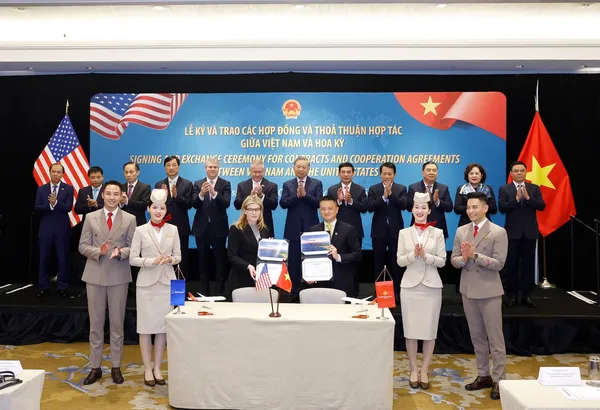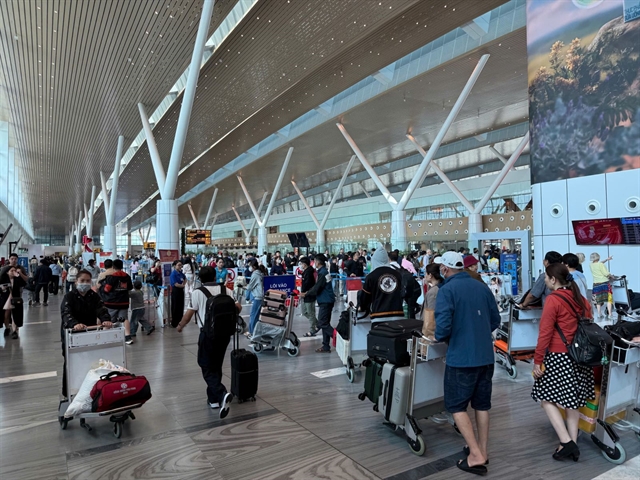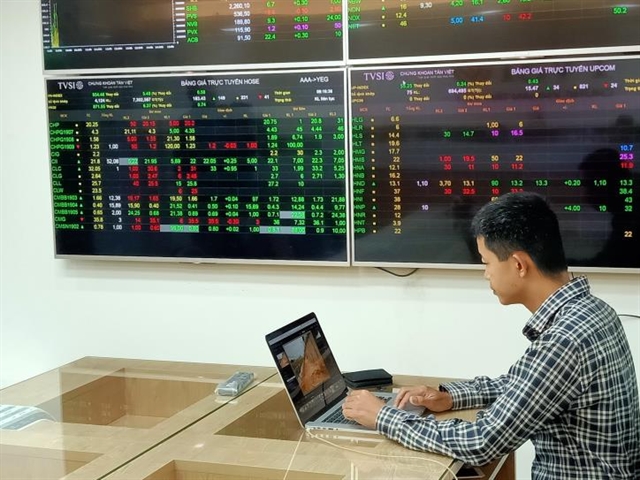 Brandinfo
Brandinfo

This year’s congress is hosted and organised by the International Society of Engineering Asset Management (ISEAM), RMIT Vietnam and the Asset Institute.
With a young and digital-savvy population, Viet Nam is a potential market for digital technology development across all fields.
A large number of polled Vietnamese enterprises have allocated specific budgets for digital transformation activities, according to the business digital transformation report released on 16 February 2023. This is an annual publication implemented by the Ministry of Planning and Investment’s Enterprise Development Agency as part of a programme supporting businesses in digital transformation for 2021-2025.
Last year, Viet Nam recorded its best-ever performance in digital economic development. The contribution of the digital economy to national GDP in 2022 accounted for about 14.26 per cent of the total, with 7.18 per cent contributed by information and communication technology.
According to the "e-Conomy SEA 2022" report released by Google, Temasek and Bain & Company in October 2022, Viet Nam has also set a target to post 31 per cent growth in gross merchandise value (GMV) from US$23 billion in 2022 to US$49 billion in 2025, the highest growth in the Southeast Asia region.
With the enormous potential of Viet Nam to develop a digital government, digital economy, and digital society; and form strong digital technology enterprises as well, the organisers of the World Congress on Engineering Asset Management have chosen HCM City, the largest financial and economic centre of the country, for the 2023 event.
The World Congress on Engineering Asset Management (WCEAM) is a flagship project of the International Society of Engineering Asset Management (ISEAM).
 |
| The event will focus on Industry 4.0, digital transformation, and engineering asset management (Source: Freepik). |
{ "id": "9HHPFdKRa8", "type": "myToolImages", "data": { "data": "" } }
The event will be focused on Industry 4.0, digital transformation, and engineering asset management.
Congress Chair Professor Brett Kirk, Dean of School of Science, Engineering & Technology, RMIT Vietnam said: “Engineering Asset Management is a field that enables business decisions to be based on engineering data through the use of technology. Industry 4.0 (4IR), SMART systems and digital transformation emerged from the global field of Engineering Asset Management.
“The World Congress on Engineering Asset Management will bring together academic, policy and industry expertise from diverse economies, geographies, public and private industry sectors to proffer discourse on how to exploit 4IR technologies to sustainably manage engineered assets in a manner consistent with Society 5.0 ideals.
“This is a combined industry and academic event to exchange knowledge and expertise with an aim to bringing impact to our community and supporting the massive growth of Viet Nam’s industrial economy,” he added.
The activities, annual meetings, and events of WCEAM provide opportunities for educators, policymakers, practitioners, researchers, and trainers to engage in intellectual discourse on the development and advancement of the body of knowledge and practice of managing engineered assets.
It is expected to welcome over 250 participants from all around the world to meet and share state-of-the-art knowledge in research and application of advanced management frameworks, analytical tools, and technologies for engineering asset management in sectors that include energy, oil and gas, water, transport, construction, manufacturing, agriculture, defence, health and community infrastructure – across every industry sector.
Selected top quality Research and Industrial-case papers that are peer-reviewed, accepted, and presented at 17th WCEAM 2023, will be published in the Springer e-book “Proceedings of the 17th World Congress on Engineering Asset Management”.
The Springer e-book series is indexed by Scopus and is also currently being assessed for inclusion in EI Compendex. Past proceedings are also available on the Springerlink website.
The abstract submission deadline is 7 April 2023. Submit your work soon to have a chance to submit the full paper by 24 May 2023.
For more information, visit the event’s website here.




